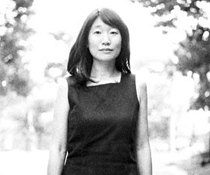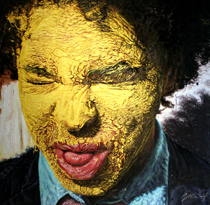Pages: 1 2
Routes and Roots
(Poet, Amatoritsero Ede, in conversation with novelist, Madeleine Thien)
Amatoritsero Ede: It is our pleasure at MTLS to be able to get you to sit down with us. We know you have a busy schedule. Thank you! First, lets talk about your move (?) from Canada to Germany. Are you on a break from Canada or do you now live in Germany or you are simply travelling?
Madeleine Thien: I’m in Germany because my partner, Rawi Hage, won a fellowship here from a German institution that brings writers, composers, filmmakers and visual artists to live in Berlin for a year. So it’s been a break of the most wondrous kind! I’d been to Germany three or four times, and to Berlin once before, but having the chance to live here, to meet other artists and be part of the cultural life, has been incredibly lucky. It’s fed my writing and my life. At the moment, we are here only temporarily, but I’d like to find a way to keep a foot in Berlin. It’s an ever-surprising city. I feel like there’s space to create and think and room to breathe.
A.E.:Â Incidentally I lived in Germany for eight years as a student. I have my own views about her cultural, political and social life. What are your own impressions both as a writer experiencing the literary milieu and as an individual living in or visiting that space?
M.T.: Here, I have the feeling of living on a partition, even though that line – the Berlin Wall, or the divide between former Communist governments and the West – is no longer immediately visible. Maybe this feeling comes from being situated between Western Europe and Eurasia, and having always looked both east and west, rather than only to the West. There’s a great deal of memory here, and at the same time, a kind of push-pull correlation between remembering and living, memorialising and creating. It’s the most spacious city – in terms of artistic ideas, openness, and freedom – that I’ve ever encountered. This is not to say that it’s a perfect city and that xenophobia or racism don’t exist. They do, as they do in every place in the world. But in Berlin, there’s a great deal of questioning, and this makes me hopeful.
A.E.:Â In an interview you mentioned being a nomad. You do move around. What was your experience of Nigeria like?
M.T.: I loved Nigeria. The visit was short, less than two weeks, the kind of visit that is more of an opening, an introduction or a temptation! We taught in Abuja and did readings in Lagos, and being in these cities was one of the great experiences of my life. I knew immediately that I wanted to come back. Even just sitting in the infamous Lagos traffic was energizing. Plus I became addicted to the spices, the pepper soup and the local beer I needed to put out the fire.
A.E.:Â I know you were in Nigeria for the Fidelity Bank organized writing workshop anchored by you, my friend, Helon Habila and Tsitsi Dangaremgba. What was it like working with writers from other places who, along with you and other young writers, are reshaping 21st century world literature?
M.T.: Even though Helon, Tsitsi and I come from very different places, we each write about the mechanics of government and ideology, and about histories that are far from over. We share a great many things. In the end, I’m sure the young writers taught me more than I taught them. They had experienced many things in their lives . . . I felt there was a hunger for expression, for ways of finding the right words and the right language to tell stories that are not being heard, whether at home in Nigeria, in Africa, or internationally. They had a lot to say about Nigeria, the current political situation, the complexity of home and language, and the lives of minorities – ethnic and religious – and women. They are some of the bravest and boldest young writers I’ve worked with. There was no sense of entitlement. Instead, there was real and difficult engagement with the world around them. Writing is not an easy life choice, and these writers are facing much more serious obstacles than writers in Canada, the UK or the United States, and I found the depth of their commitment substantially different from writers elsewhere. I’m hoping to return to work with Tsitsi later this year in Zimbabwe. We’re still figuring out logistics, but I would love to collaborate with her again, and of course with Helon. We also had some ideas for a more pan-African workshop for young writers.
A.E.: From your direct experience of their stories could you give us an idea of the kind of obstacles these young Nigerian writers you mentored have to deal with?
M.T.: All of the writers were working or studying full time, some could not afford computers and were not able to access online resources, most were just staying afloat financially. Some did not have easy access to books or contemporary literature. Artistically, they were writing in English but trying to stretch the English language not only to accommodate local dialects and melodies, but to profoundly resonate with them. In some ways, they’re making a new literary language while drawing on the traditions of English literature, Nigerian literature in all its diversity, and the other languages at their disposal. Finally, they’re trying to actively respond to and challenge the things they’ve witnessed and the current political situation. History and politics are in no way abstract or removed from their daily lives. Finally, they’re distant from the centres of publishing, London and New York, and have to be ten times as good in order to get read. As my mother used to say, You need to better so that you might be equal.
A.E.: This leads me to your most recent Novel, Dogs at the Perimeter. The setting shuttles between Canada and Cambodia. How do the emotional geographies you traverse and the memory of places shape that work?
M.T.: I remember, the first time I travelled to Asia, I was about twenty-three years old. Before I left Vancouver, I went to the apartment where my father was living. He sat down at the kitchen table, took out a piece of paper and a pencil, and drew a map of the town where he was born. He wrote down the names of streets, drew individual buildings, including a shop my grandfather once owned, the location of a bank, churches, and other landmarks. In thirty years, my father had travelled back to Malaysia just once, and he rarely talked about the first half of his life. I still have the piece of paper. It was like watching something unspoken and very private suddenly come to life. I think the unspoken, past (dismantled) life has shaped all my work. In Cambodia, the emotional geography is intense and difficult and deeply humbling. My characters are almost always carrying geographies that are invisible, and they are trying to honour the memory of people they’ve left behind or lost forever. Canada is full of the ghosts that people from all over the world are carrying with them. At the same time, these characters want to reinvent themselves, to have the chance to become someone new.
Pages: 1 2





No Comments so far ↓
There are no comments yet...Kick things off by filling out the form below.